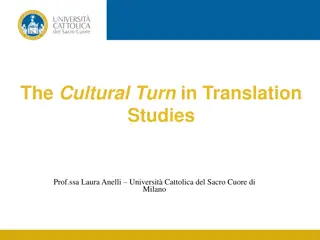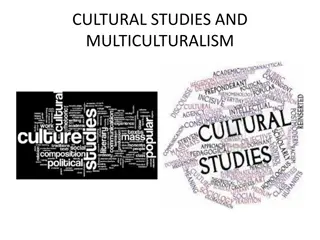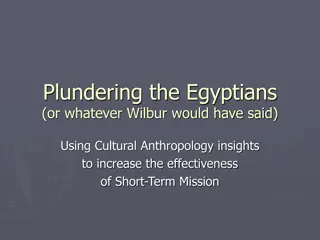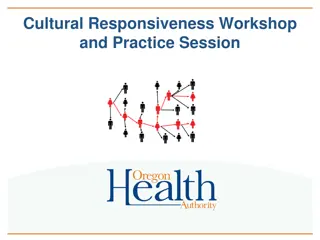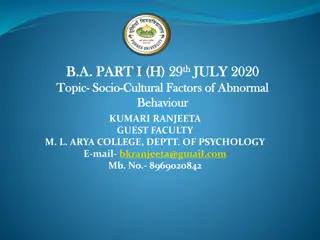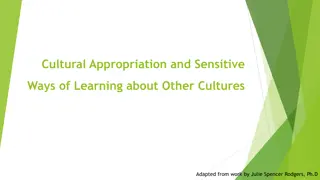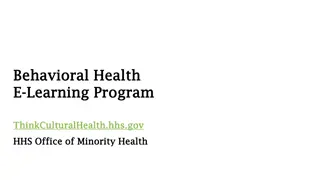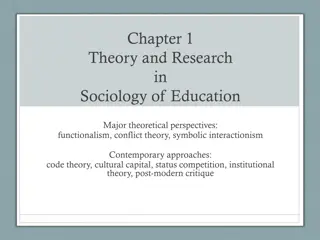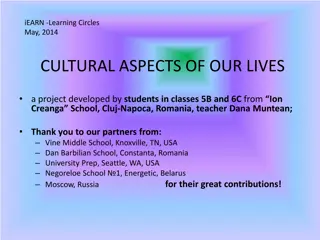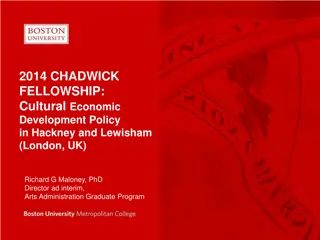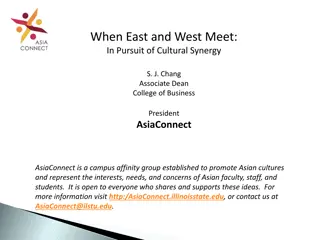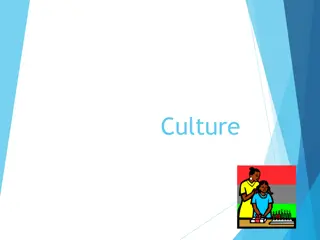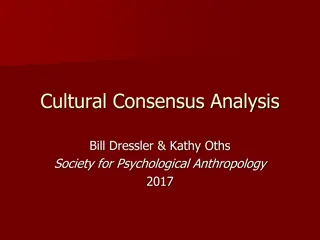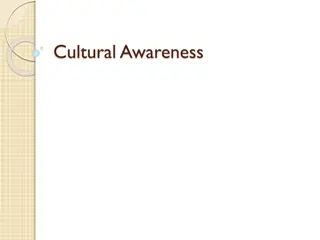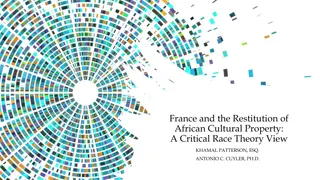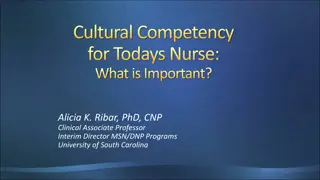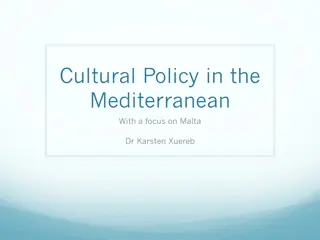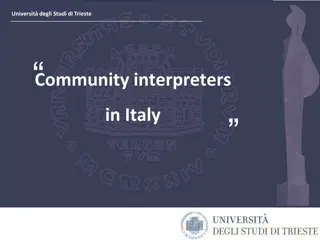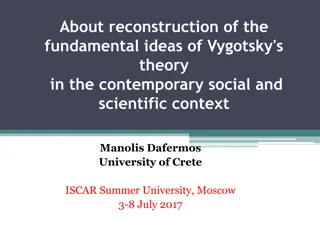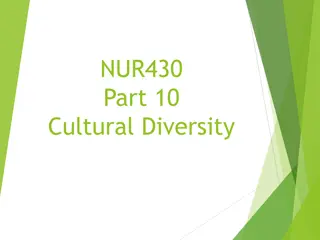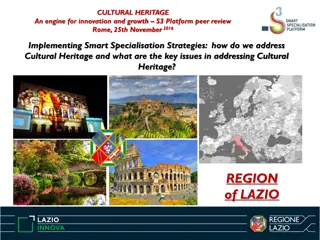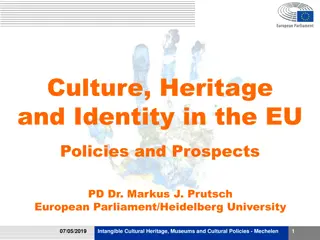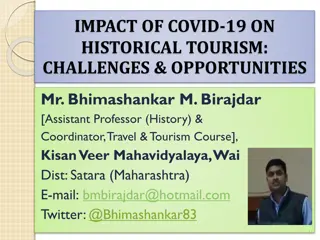Understanding Translation Studies: From Origins to Cultural Turn
The exploration of translation studies, from its historical roots to the modern cultural turn, delves into the essence of translation, its typologies according to Jakobson, the role of translators through historical perspectives from Cicero to modern times, and insights from Dryden and Schleiermache
2 views • 38 slides
Challenges and Solutions in Implementing Historical Competencies in Teaching
Explore the complexities and obstacles faced in implementing historical competencies in teaching, as discussed by Jens Aage Poulsen, a senior lecturer and researcher at HistoryLab, University College Lillebaelt, Denmark. The content delves into competence-based curriculum, core historical competenci
0 views • 7 slides
Evolution of Mathematical Theories and Proof Systems
Development of mathematical theories such as model theory, proof theory, set theory, recursion theory, and computational complexity is discussed, starting from historical perspectives with Dedekind and Peano to Godel's theorems, recursion theory's golden age in the 1930s, and advancements in proof t
1 views • 29 slides
Psychological Theories of Criminality: Understanding the Roots
Psychological theories of criminality delve into the association between intelligence, personality, learning, and criminal behavior. Major theories include Psychodynamic Theory by Freud, Behavioral Theory by Bandura, and Cognitive Theory by Kohlberg. These theories explore how unconscious mental pro
1 views • 20 slides
Exploring Cultural Studies and Multiculturalism
Cultural studies is an interdisciplinary field that examines cultural differences while aiming to create a shared culture where diversity is respected. It challenges traditional views by studying all cultural productions and their societal contexts. Stuart Hall's work further delves into different p
0 views • 18 slides
Enhancing Short-Term Mission Effectiveness Through Cultural Anthropology Insights
Utilizing insights from cultural anthropology, this presentation delves into defining culture for short-term missions, viewing culture in successive levels, and key concepts such as cultural evolution and relativity. It explores the impact of culture on individuals and missions, emphasizing the impo
0 views • 16 slides
Understanding the Theory of Firms: Neoclassical vs. Modern Approaches
The theory of firms is explored through the Neoclassical and Modern perspectives. Neoclassical theory focuses on profit maximization, while Modern theory delves into managerial, principal-agent, and transaction cost theories. The discussion covers criticisms of Neoclassical theory and the essential
1 views • 79 slides
Exploring Cultural Responsiveness Through Workshops & Practice Sessions
This content provides a comprehensive guide on cultural responsiveness through workshops and practice sessions. It covers topics like cultural sensitivity, biases identification, and ways to reduce implicit biases. Resources, videos, and insights on cultural knowledge and awareness are shared to pro
0 views • 19 slides
Critics and Defenders in Multiculturalism Debate
Critics of multiculturalism argue that its focus on cultural inequalities diverts attention from socio-economic issues, while defenders like Kymlicka advocate for balancing cultural recognition with equal rights. Feminist critics raise concerns about cultural support for individual self-respect, par
0 views • 9 slides
Understanding Socio-Cultural Factors of Abnormal Behavior in Psychology
Exploring the impact of socio-cultural factors on abnormal behavior, this article delves into the influence of societal pressures, cultural norms, and economic status on mental health. The socio-cultural model emphasizes how societal criteria shape perceptions of abnormality, highlighting the role o
0 views • 7 slides
Understanding Cultural Appropriation and Respectful Cultural Learning
This content delves into the concept of cultural appropriation, offering definitions, examples, and ways to avoid it. It emphasizes the importance of cultural appreciation and outlines the differences between appropriation and appreciation, highlighting the power dynamics involved. Readers gain insi
1 views • 16 slides
Enhancing Cultural Competency in Behavioral Health Professionals
This e-learning program, developed by the HHS Office of Minority Health, focuses on improving cultural competence for behavioral health providers. It covers topics such as the connection between culture and behavioral health, the impact of cultural identity on client interactions, and strategies to
0 views • 9 slides
Theories of Causation in Psychological and Social Sciences
Overview of theories of causation categorized into psychological, social psychological, and sociological perspectives. Psychological theories focus on instinctive, biological, and psychological qualities of abusers, including Attachment Theory, Psychodynamic Theory, Social Learning Theory, and Situa
0 views • 15 slides
Understanding Political Theory through a Contextual Approach
Exploring G.H. Sabine's perspective on political theory through a contextual approach, emphasizing the importance of historical context and societal influences. Sabine argues that while political theory evolves with its contemporary politics, it should be analyzed within its specific time and social
0 views • 9 slides
Evolution of Light Theory: From Wave Theory to Quantum Theory
At the turn of the century, the discovery of the photoelectric effect challenged the wave theory of light, leading to the development of the quantum theory by Max Planck and Albert Einstein. This new theory introduced the concept of discrete energy units known as quanta, bridging the gap between wav
1 views • 62 slides
Theoretical Perspectives in Sociology of Education
Exploring major theoretical perspectives such as functionalism, conflict theory, and symbolic interactionism along with contemporary approaches like code theory, cultural capital, and status competition. The functionalist theory emphasizes social cohesion and maintaining social order through educati
3 views • 14 slides
Cultural Aspects of Our Lives: Exploring Representative Institutions and Traditions
Explore the diverse cultural aspects of communities through a student project focusing on representative cultural institutions, historical backgrounds, fairs, festivals, traditions, art, and more from partner cities like Knoxville, Constanta, Seattle, Energetic, Cluj-Napoca, and Moscow. Discover the
0 views • 57 slides
Louisiana Cultural Districts: Engaging Communities in Cultural Development
The Louisiana Cultural Districts program, under the Cultural Economy Initiative, aims to revitalize local communities by creating hubs of cultural activity. By building on cultural resources and promoting art and culture, the program benefits from increased occupancy, commerce, and community identit
2 views • 18 slides
Dp-branes, NS5-branes, U-duality, and M-Theory Overview
Overview of Dp-branes, NS5-branes, and U-duality derived from nonabelian (2,0) theory with Lie 3-algebra. Introduction to M-theory, including M2-branes and M5-branes in the strong coupling limit. Discussion on BLG theory, Lorentzian Lie 3-algebra, and the ABJM theory for M2-branes.
1 views • 32 slides
Understanding Time-Independent Perturbation Theory in Quantum Mechanics
Perturbation theory is a powerful tool in solving complex physical and mathematical problems approximately by adjusting solutions from a related problem with known solutions. This theory allows for more accurate approximate solutions by treating the difference as a small perturbation. An example inv
0 views • 19 slides
Ethical Theories: Divine Command vs. Virtue Theory Explained
Divine Command Theory asserts that morality is derived from God's commands, contrasting with Virtue Theory which focuses on developing moral virtues to achieve human flourishing and excellence. Divine Command Theory relies on religious texts, while Virtue Theory emphasizes the cultivation of virtues
0 views • 24 slides
Cultural Economic Development Policy in Hackney and Lewisham: A Comparative Study
Building on previous research in Massachusetts, this project focuses on examining local government initiatives in cultural economic development in London boroughs of Lewisham and Hackney. The study explores the role of government in enhancing the cultural and creative industries, aiming to contribut
0 views • 7 slides
Bridging East and West: Cultivating Cultural Understanding
Exploring the complexities and nuances of cultural differences between the East and the West, this article delves into the challenges of cultural synergy and the importance of fostering multicultural understanding. Highlighting the need for effective communication and empathy across cultures, it pre
0 views • 18 slides
Understanding Cultural Diversity in Healthcare
The content explores the significance of cultural diversity in healthcare, emphasizing the increasing diversity of the population in the United States and the importance of cultural competence in nursing. It delves into cultural concepts, transcultural nursing, cultural context of health and caring,
0 views • 13 slides
Understanding Cultural Consensus Analysis in Psychological Anthropology
Explore the essence of Cultural Consensus Analysis (CCA) as a significant aspect of psychological anthropology. Through ethnographic work and structured techniques, CCA helps verify shared knowledge within cultural domains and enhance the comprehension of cultural models. The model and steps involve
0 views • 64 slides
Understanding Cultural Awareness and Diversity in the United States
Explore the significance of cultural awareness, including definitions of culture, cultural groups, and subcultures. Learn about the diversity in the United States based on national origins, beliefs, customs, and shared characteristics. Discover how to interact positively with individuals from differ
0 views • 37 slides
Theories of Interest in Microeconomics II
Explore various theories of interest in economics, including the Classical Theory, Liquidity Preference Theory by Keynes, Productivity Theory, Abstinence Theory, Time-Preference Theory, Fisher's Time Preference Theory, and the Loanable Fund Theory. These theories offer different perspectives on the
0 views • 6 slides
Development and Application of Cultural Policy Typology for Arts and Culture
This research focuses on presenting a cultural policy typology based on goal variation and examining its application in a U.S. state art/cultural agency, specifically the Massachusetts Cultural Council. The study delves into the policy goals of the council and highlights the need for a specialized c
0 views • 16 slides
Exploring the Evolution of Atomic Theory
Delve into the historical journey of atomic theory starting from Democritus and Aristotle's views to modern advancements proving some aspects of Dalton's theory incorrect. Learn about key laws and theories such as the Particle Theory of Matter, Dalton's Atomic Theory, and JJ Thomson's discoveries, s
0 views • 30 slides
France and the Restitution of African Cultural Property: A Critical Race Theory Perspective
This comprehensive piece delves into the restitution of African cultural property by France through the lens of Critical Race Theory (CRT). It explores the historical context, the impact on people of African descent, and the potential policy implications. The research question examines how CRT can i
0 views • 14 slides
Understanding Cultural Competency in Nursing Today
Explore the importance of cultural competency for nurses today, encompassing the definition of culture, cultural competence, Leininger's Culture Care Theory, and the significance of cultural understanding in nursing. The presentation delves into the role of nurses in promoting health across diverse
0 views • 14 slides
Exploring Cultural Policy in the Mediterranean with a Focus on Malta
Delve into the intricate web of cultural relations in the Mediterranean region, centered around Malta. From historical and political insights to postcolonial influences and the role of cultural policy, this exploration sheds light on the complexities and nuances shaping the cultural landscape. Disco
0 views • 23 slides
Addressing First Nation Initiatives in Yukon: Education & Cultural Preservation
Explore the significant role of the ADM position in First Nation Initiatives, historical context, and cultural efforts in Yukon. Learn about the initiatives to improve education outcomes, integrate First Nations context in the system, and preserve cultural identity. Understand the challenges faced b
1 views • 17 slides
Community Interpreting and Cultural Mediation in Italy: Insights from the University of Trieste
University of Trieste sheds light on the roles and qualifications of cultural mediators in Italy. The profession, categorized into linguistic and cultural mediation, plays a vital role in facilitating relationships between authorities and foreign residents, promoting integration, and dismantling lan
0 views • 9 slides
Understanding the Art Bonus Tax Credit for Cultural Support
The Art Bonus tax credit in Italy encourages individuals and businesses to support cultural heritage through charitable donations, providing a tax credit of 65%. This initiative aims to not only fund cultural institutions but also strengthen the bond between citizens and their heritage, driving soci
0 views • 10 slides
Reconstructing Vygotsky's Theory in Contemporary Context
The reconstruction of Vygotsky's fundamental ideas in the modern social and scientific landscape is crucial due to misconceptions and challenges faced in international academic communities. This process involves understanding the cultural-historical theory, exploring broader epistemological and meth
0 views • 29 slides
Understanding Cultural Diversity in Nursing Education
Explore essential concepts in transcultural nursing, including Leininger's Transcultural Nursing Theory and other models. Learn about cross-cultural nursing, cultural competence, diversity in nursing practice, and key terms like cultural imposition and acculturation. Enhance your cultural competence
0 views • 32 slides
Cultural Heritage as an Engine for Innovation and Growth in the Region of Lazio
Discussing the significance of cultural heritage in driving innovation and growth in the Region of Lazio, this report highlights the key elements and issues related to smart specialization strategies. It emphasizes the economic impact of tourism and cultural heritage in terms of enterprises, value a
0 views • 19 slides
Cultural Heritage and Identity in EU Policies
Delve into the significance of cultural heritage and identity in European Union policies through a presentation discussing the evolution of heritage, European identity concepts, and EU heritage policies since the 1970s. Explore the intertwined nature of cultural heritage with European integration an
0 views • 11 slides
Impact of COVID-19 on Historical Tourism: Challenges & Opportunities
The impact of COVID-19 on historical tourism has been significant, posing challenges to the travel and tourism industry while also opening up new opportunities for adaptation and innovation. Historical tourism involves exploring the history and heritage of a place, encompassing cultural resources, t
0 views • 17 slides
